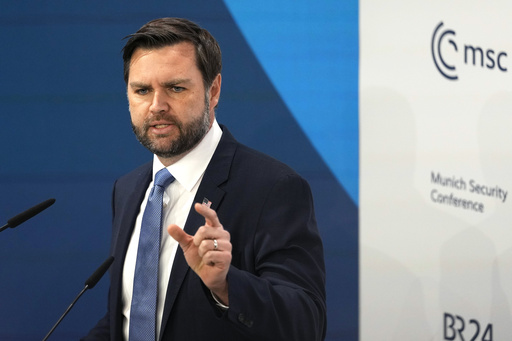MUNICH, Germany — Ukrainian President Volodymyr Zelenskyy recently revealed that he advised his officials against signing a deal with the U.S. regarding rare earth minerals. According to Zelenskyy, the proposed agreement primarily catered to American interests and lacked solid security assurances for Ukraine. This information comes from two senior officials who discussed the matter on the condition of anonymity. A senior official from the White House labeled Zelenskyy’s decision as “short-sighted.”
Ukraine is known to possess substantial reserves of essential minerals utilized in various industries including aerospace, defense, and nuclear. Previous U.S. administrations, particularly during Trump’s presidency, have expressed an interest in these resources as a strategy to lessen reliance on China. However, Zelenskyy emphasized that any potential extraction must be linked to security guarantees that would deter Russia from future military aggression.
“I refrained from allowing the ministers to sign an agreement because, in my view, it does not adequately protect our interests,” Zelenskyy stated during a conversation with the press on the sidelines of the Munich Security Conference. He emphasized that the document handed to Ukraine lacked tangible assurances regarding security guarantees.
Zelenskyy articulated the importance of establishing a connection between investment prospects and security guarantees. Although he refrained from detailing his reasons for instructing officials not to sign the document, which U.S. Treasury Secretary Scott Bassent presented earlier in the week during his visit to Kyiv, he conveyed his conviction that such an agreement was unacceptable.
A former high-ranking Ukrainian official remarked that the proposed deal resembled a colonial agreement that would not serve Ukraine’s interests. White House National Security Council spokesman Brian Hughes did not confirm the specific offer but stated that Zelenskyy’s decision overlooked a valuable opportunity presented by the Trump administration. According to Hughes, the administration has become frustrated with ongoing aid to Ukraine, and the minerals agreement would help American taxpayers recover funds sent to Kyiv while simultaneously stimulating the Ukrainian economy.
Hughes claimed that establishing strong economic ties with the U.S. would serve as a crucial safeguard against future aggression and would play a significant role in achieving lasting peace. He noted that this understanding should be recognized by all parties involved, including Russians and Ukrainians.
During discussions at the Munich conference, U.S. officials focused on the commercialization of the mineral deposits in Ukraine and deliberated on the potential for partnerships to explore these resources. However, the value of these deposits remains unclear as much of the territory is still unexplored or located near conflict zones.
Concerns were raised regarding the security of mineral extraction operations amid ongoing Russian hostilities. A senior official hinted that the U.S. lacked definitive answers on how to protect these operations and suggested that discussions in Munich highlighted the necessity of establishing security measures for any extraction involving infrastructure and personnel.
Any agreement would need to be compliant with Ukrainian law and favorable to the public. As Kseniiia Orynchak, founder of the National Association of Mining Industry of Ukraine, noted, according to the Ukrainian Constitution, natural resources belong to the citizens.
During a productive meeting at the conference, Zelenskyy and U.S. representative Vance did not delve into the specifics of the U.S. proposal. However, Zelenskyy conveyed to Vance that establishing genuine peace would require Ukraine to negotiate from a position of strength, advocating for U.S. participation alongside Ukrainian and European representatives during talks with Russia.
Contrary to Zelenskyy’s hopes for European involvement, General Keith Kellogg, Trump’s special envoy for Ukraine and Russia, implied that Europeans could be excluded from the negotiations. At a gathering hosted by a Ukrainian tycoon, he stated, “You can have the Ukrainians, the Russians, and clearly the Americans at the table talking,” while suggesting that European involvement was unlikely.
In the coming weeks, Ukraine plans to present a counterproposal to the U.S., underscoring that any agreement must be practical, translating into both financial benefit and security for the country.




